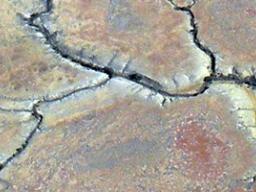Drought resilience amongst farmers and agricultural communities in Australia, 1880s-2000s
‘Slow Catastrophes’ explores the history of people’s resilience to drought in Australia. Drought is a profound shaper of Australian rural society and its recurrence has meant that rural communities have, over time, found ways to respond, adapt and survive. This is a historical study exploring social issues which have contributed to surviving drought in rural Australia between the 1880s-2000s. This research focuses on the role of human-environment relationships in drought response and applies understandings of natural disaster resilience to drought in Australian history. It includes two case studies: the semi-arid Mallee region of Victoria/NSW/SA and moist temperate Gippsland in south eastern Victoria. Understanding the way people survive drought in the past may contribute to developing strategies for coping with drought and climate variability in the future. This project is funded by the Australian Research Council Discovery Early Career Researcher Award (DECRA). Researcher:Rebecca Jones
Image Gallery
Dry river bed
